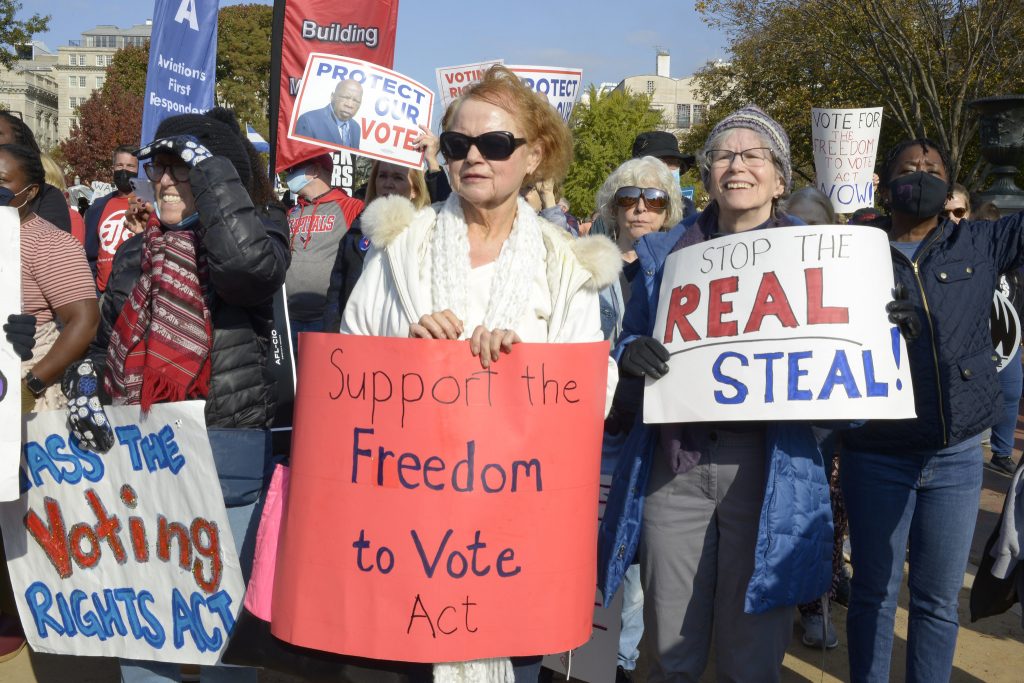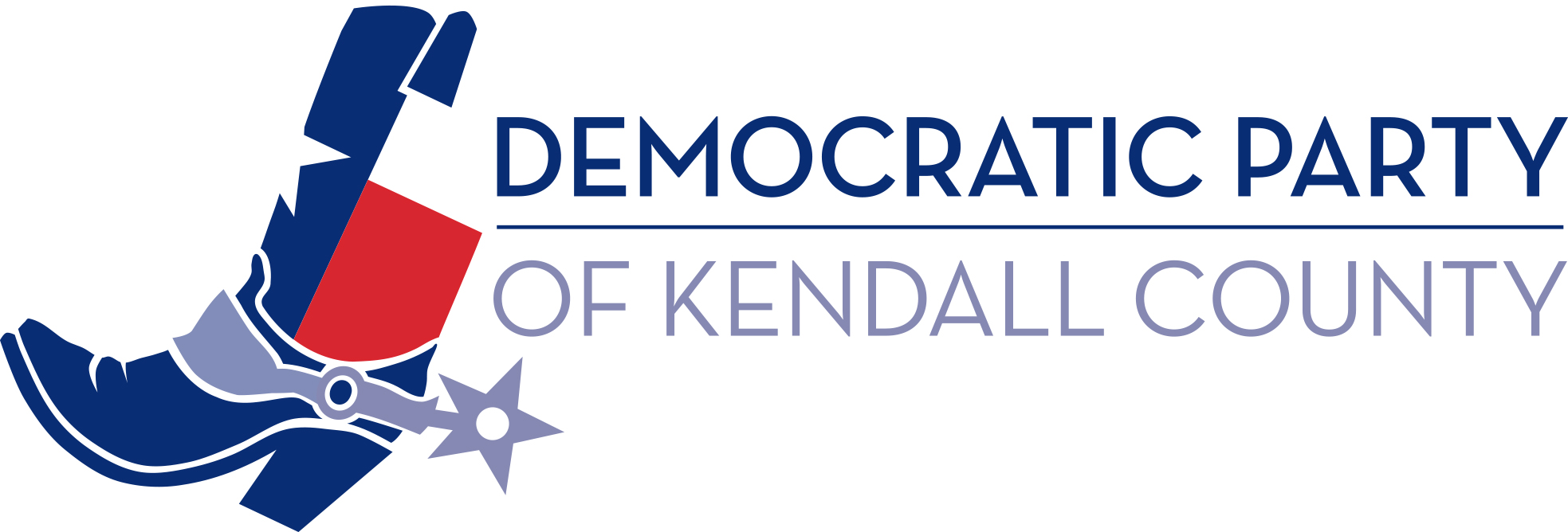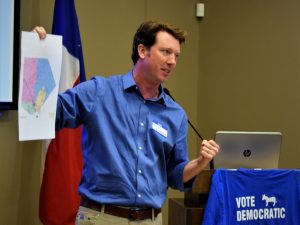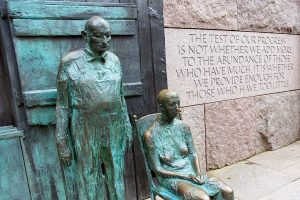by Calvin Perryman
for the “Progressive Views” column, Boerne Star, May 20, 2022

Mr. Perryman was the winner of the 2022 Civic Engagement Scholarship sponsored by the Boerne Area Democrats. He is a senior at Champion High School and will be attending Connecticut College in New London, CT in the fall. He plans to major in Music Production and Anthropology. Calvin was a first-time voter in the May 7 election, He wrote the below essay based on the following prompt: “Consider the numerous challenges facing our country today, such as the environment, health care, civil rights, education and immigration. Pick an issue that you think is the most critical, explain its importance/implications, and describe how you would advise our government to address this challenge.”
In a society supposedly governed as a representative democracy, perhaps the most fundamental right held by its citizens is the right to vote. The foundational stricture of democracy – government by and for the people – is widely regarded in America as the basis for a functioning, fair, and equal society. However, this ideal has failed to become a reality from the birth of the United States to the present day. In order to realize its dream of equal opportunity, America must work to enfranchise marginalized communities into our political framework by securing the right and ability to vote for all.
At the inception of our country, the Constitution delegated the power to set voting requirements to the states, most of which limited suffrage to property-owning white males.
Following ratification of the Fourteenth Amendment in 1868, which was aimed at protecting U.S. citizens’ fundamental rights no matter what state they lived in, and ratification of the Fifteenth Amendment in 1870, which prohibited states from denying the right to vote on grounds of race, color, or previous condition of servitude, the ruling class found new ways to protect their interests by enacting poll taxes, literacy tests, and other discriminatory policies to disenfranchise Black and poor white voters. Such tactics found great success in suppressing the vote and still play an integral role in such efforts going on today.
Despite massive gains secured during the Civil Rights Movement with passage of the Voting Rights Act of 1965, the ability of marginalized citizens to exercise their right to vote continues to be under assault from anti-democratic interest groups aimed at protecting the status of America’s elites. In 2013, the landmark Shelby County v. Holder Supreme Court ruling undermined the Voting Rights Act and allowed state legislatures – influenced by special interest groups – to suppress voting rights through tactics such as restrictive voter ID laws under the guise of preventing “voter fraud.” States took great advantage of this latitude to enact laws that weakened the voices of minorities and voters of color. The Brennan Center for Justice, a nonpartisan policy institute, estimates that 19 states passed 34 laws restricting access to voting in 2021 and at least 27 state legislatures have introduced more than 250 bills with restrictive provisions in 2022.
Reducing political participation undermines democracy: how can a government by and for the people protect the rights of citizens who have no say in their representation? Since the founding of the United States of America, democratic ideals have been compromised and private interests have been prioritized over the public good, preventing a truly representative government from taking place. Congress has a responsibility to pass bills like the Freedom to Vote Act and the John Lewis Voting Rights Advancement Act, which are aimed at establishing national standards for voting, reducing barriers to voting, restricting money in politics, and ensuring districting that promotes fair and equal representation. By passing such legislation, we stand a chance at making the promise of equality and freedom a reality.
Ready to get involved?
Learn more about upcoming opportunities to take action online and/or in our own community.



